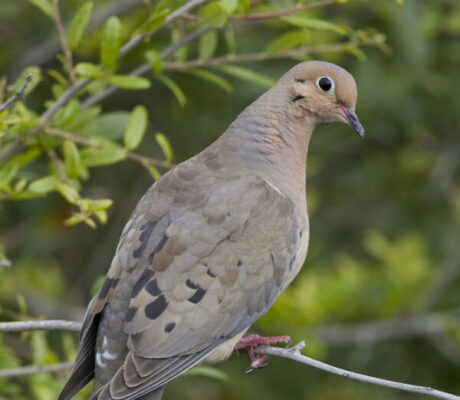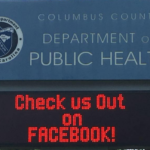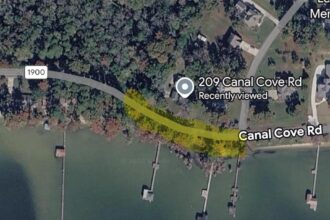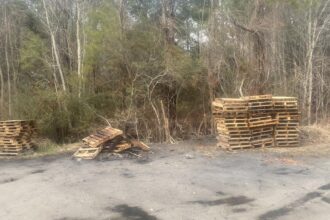The 2022-23 hunting season for mourning and white-winged doves opens on Saturday, Sept. 3. This is big news for hunters who enjoy hunting migratory game birds. It’s also an opportunity for officials from the N.C. Wildlife Resources Commission to remind seasoned and novice hunters the importance of being properly licensed, to observe state and federal regulations and to follow safe hunting practices.
Dove hunting season will be separated into three segments: Sept. 3 – Oct. 1, Nov. 5 – Nov. 26, and Dec. 10 – Jan. 31. The daily bag limit is 15 mourning or white-winged doves, either as single species or combined, and shooting hours are from 30 minutes before sunrise to sunset. Hunting of migratory game birds, including doves, by any method is not allowed on Sundays. It is illegal to dove hunt with a shotgun that can hold more than three shells, unless it is plugged with a one-piece filler incapable of removal without disassembling the gun, so its total capacity does not exceed three shells.
Migratory game bird hunters, including lifetime license holders, are required to register in the federal Harvest Information Program (HIP). HIP is a survey method developed by U.S. Fish and Wildlife Service to collect more reliable estimates of migratory game bird harvests throughout the country. New this year, HIP certification is available July 1 – April 1 and expires June 30 each year. Hunters can purchase or renew their license and obtain their HIP certification online for immediate use in the field. Licenses can also be purchased through a Wildlife Service Agent or by phone at 888-248-6834, 8 a.m. – 5 p.m., Monday – Friday.
It is a violation of state and federal law to take migratory game birds with the use or aid of salt, grain, fruit or any other bait. Additionally, hunters need to be aware that an area is considered baited for 10 days following the removal of all salt, grain or other feed. Migratory game birds may be hunted in agricultural areas where grain has been distributed as the result of normal agricultural operations. Information regarding agriculture and planting techniques may be obtained from a local N.C. State Extension Center. Visit the agency’s website to view an interactive map of game land dove fields.
Hunting safety is priority when in the field. Free hunter safety courses are available through the Wildlife Commission, and the agency’s Home from the Hunt campaign offers hunter’s online resources focused on being safe during time spent outdoors.
Wildlife Law Enforcement Officers advise dove hunters to follow these safety tips:
- Adhere to established safe zones of fire.
- Ensure you have the correct ammunition for your firearm.
- Keep the muzzle of your firearm pointed in a safe direction
- Keep your finger off the trigger until ready to shoot.
- Do not shoot at low-flying birds.
- Do not place decoys on utility lines.
Visit ncwildlife.org for more information about doves and to download the 2022-23 North Carolina Regulations Digest.







